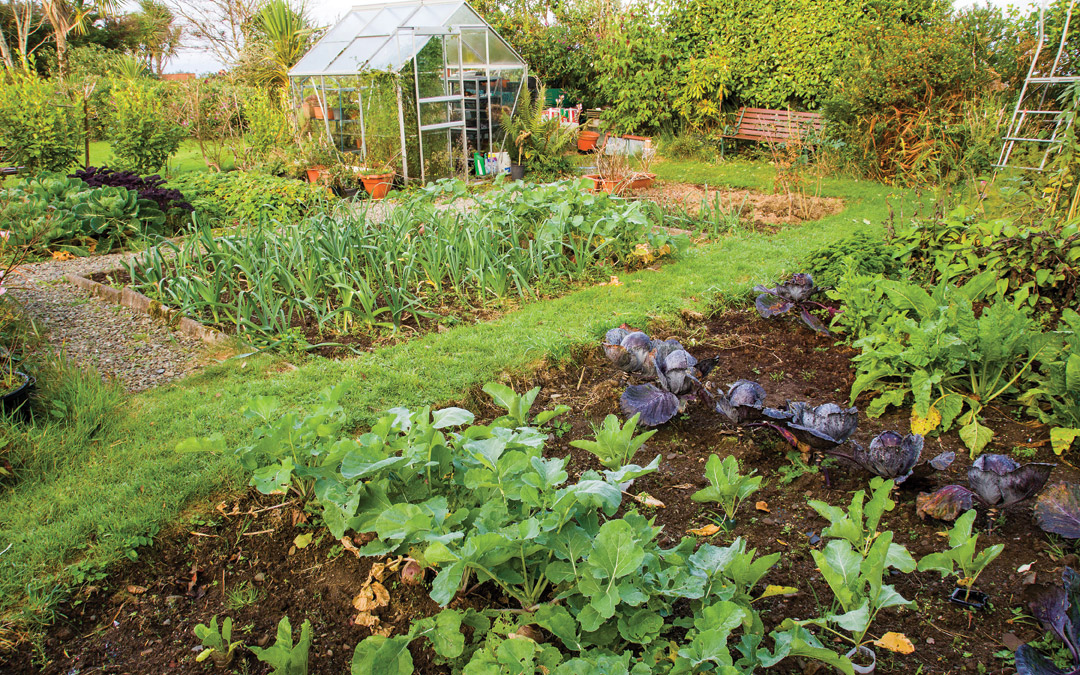While spring has always been peak gardening season in Maryland, folks are digging in their gardens this year for another reason: the return of the Victory Garden.
Victory Gardens originated during World War I when Americans were encouraged to grow their own fruits and vegetables to help feed themselves and the troops. Faced with COVID-19 this year, growing our own food can be a powerful and practical way to fight back.
Now more than ever, gardens are a symbol of resilience and rebirth. Here are a few tips for growing basic backyard crops:
Container Veggies
Patio, bush, Marglobe and Early Girl tomatoes, and shishito and jalapeno peppers are easily grown in containers. Peppers and tomatoes should be planted in containers that are at least five gallons. They should be staked and watered daily.
Garden Plot Veggies
For garden plot planting, we recommend hybrid tomato cultivars such as Sungold, Sweet 100 and Super Sweet 100; sweet pepper cultivars like Bell Boy and Big Bertha; and medium hot peppers like Ancho 101 and Mexibelle. These varieties need ample space so they are better suited for garden beds than containers.
- Tomatoes planted in the ground will need nine square feet;
- Peppers in the ground require four square feet;
- All plants should be staked when planted;
- Peppers and tomatoes require an inch of water per week;
- Tomato and pepper seedlings should be transplanted in early June, either to containers or plots;
- Harvest tomatoes with the first blush of color.
More Tips for Easy-to-Grow Veggies
Cucumbers can do well in a container or a plot, provided they have ample sunlight and can be supported by stakes or a trellis. Green beans including the bush, string and snap varieties also are easy to grow. Zucchini and yellow squash are prolific in containers or directly planted in mounded soil provided they have enough moisture. Always refer to plant labels for best conditions.
Easy-to-Grow Herbs
Basil and coriander (cilantro) are easy to cultivate from seed in containers. Plant them every two to three weeks to maintain a constant supply because as soon as they flower, the plants will go to seed and die. To induce longevity, cut basil and coriander flowers immediately.
Rosemary, thyme, sage, oregano and parsley seedlings can be grown in plots or containers. Mint is extremely invasive and should be planted only in containers.
To Cultivate Herbs
Basil and cilantro should not be sown or transplanted until daytime temperatures are consistently in the 70s. Containers must be placed where they will receive a minimum of six hours of sunlight a day. All containers will need drainage holes.
Use potting soil with fertilizer and polymers for moisture retention. For organic cultivation, purchase potting soil with no additives with the Organic Material Research Institute (OMRI) label. A slow release organic fertilizer should be applied according to directions.
Hints for Successful Herb Planting
- Sage and oregano require two square feet;
- Basil, thyme, cilantro and parsley require one square foot when planted in garden plots;
- Containers should be kept moist. If the topsoil is starting to dry out, water immediately. During hot summer days, containers may have to be watered twice a day;
- When planting herbs inside, the same requirements apply. The key to success is six hours per day of sunlight. Plant herbs along a sunny window and if needed supplement with grow lights. Otherwise, herbs can become leggy and lose their flavor;
- Do not overwater herbs. If they don’t receive enough light, plants will not absorb moisture and the root system will rot.
Whether you are tilling up a plot in your yard or adding some containers to your front porch or windowsill, Victory Gardening will add that bit of hope and health everyone is looking for right now.
Rebecca Brown began her career as a horticulturist more than 25 years ago and studied at the New York Botanical Gardens. She has been a University of Maryland, Baltimore County master gardener for five years and is a backyard beekeeper. Norman Cohen is a retired chemist. He has been gardening for 38 years and has been a University of Maryland, Baltimore County master gardener for 10 years. Cohen also provides gardening education to the public at local farmers markets.





